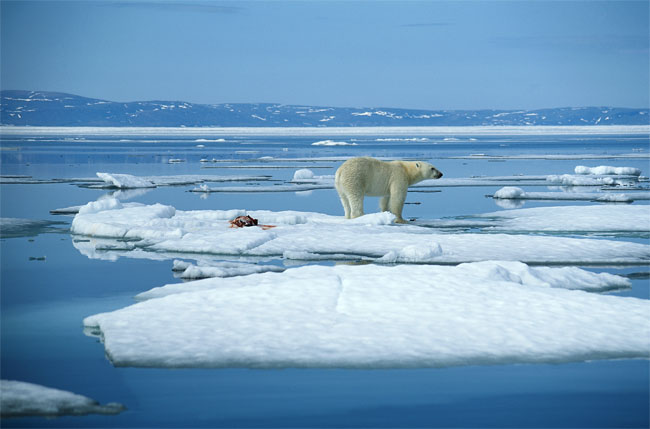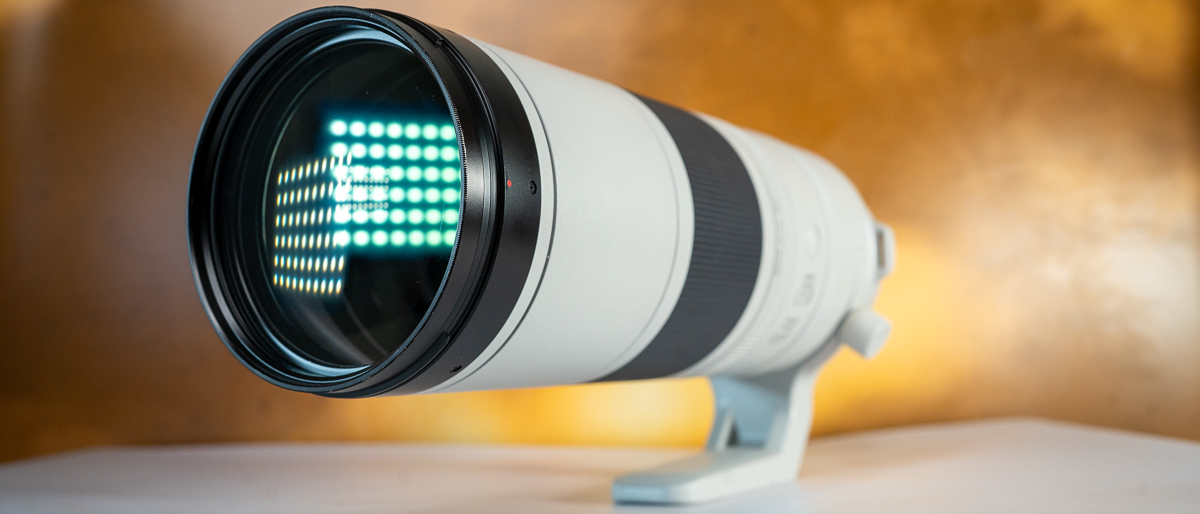Polar Bear Researcher Suspended, Spurring Alarm

The suspension of a wildlife biologist known for his research on drowned polar bears is causing confusion and alarm in scientific circles.
Charles Monnett, a wildlife biologist with the U.S. Bureau of Ocean Energy Management, Regulation and Enforcement, (BOEMRE) was placed on administrative leave on July 18 pending the conclusion of an Inspector General investigation into "integrity issues," according to the suspension order.
Monnett had been questioned by the Interior Department's Office of the Inspector General (OIG) in February about a 2006 research article published in the journal Polar Biology, in which he reported observations of drowned polar bears in the Beaufort Sea. In the article, Monnett and his co-authors speculate that bear drownings could increase if continued climate change resulted in less ice cover in the Arctic. The work was cited in the 2006 Al Gore documentary film, "An Inconvenient Truth." [Gallery: Polar Bears Swimming in the Arctic]
The questioning and subsequent suspension prompted a complaint from Public Employees for Environmental Responsibility (PEER), a nonprofit organization that provides legal assistance and support to public employees in resource management agencies. But today, a spokeswoman for BOEMRE said that the suspension had nothing to do with the earlier questioning.
"The agency placed Mr. Monnett on administrative leave for reasons having nothing to do with scientific integrity, his 2006 journal article, or issues related to permitting, as has been alleged," BOEMRE spokeswoman Melissa Schwartz told LiveScience. "Any suggestions or speculation to the contrary are wrong."
In transcripts of interviews with Monnett, he suggests that since BOEMRE (formerly called the Minerals Management Service) is responsible for giving out oil and gas permits, they are "extremely hostile to the concept of climate change." That hostility may be the real reason for the questioning and suspension, he alludes.
(OIG was contacted by LiveScience but refused to comment, saying they don't comment on open cases.)
Get the world’s most fascinating discoveries delivered straight to your inbox.
Scientist 'flabbergasted'
The statement left PEER "befuddled," said Jeff Ruchs, the executive director of the organization. Monnett, who is not able to give interviews without BOEMRE approval, has not been told what the investigation is about, Ruchs told LiveScience.
"I just got off the phone with him about half an hour ago, having just read him the [BOEMRE] statement, and we're sort of flabbergasted," Ruchs said.
According to PEER and OIG interview transcripts with Monnett, the researcher's troubles began in 2006, shortly after he published his observations about polar bear drownings. In 2004, during a research project focused on whales, the scientists observed four drowned polar bears in open water, something that had not been previously reported during the project's 17-year history. The researchers wrote up a "Note," or a brief report of observations, that was peer-reviewed internally at BOEMRE, then known as the Minerals Management Service. In 2006, the Note was further peer-reviewed and published in the journal.
It's not clear what caused OIG agents to question Monnett on the polar bear research in February. During the interview, a transcript of which appears on PEER's website, OIG agent Eric May says that his office received allegations regarding "potential scientific misconduct."
Politics and climate
The suspension has caused "outrage" in the climate science community, NASA Goddard climatologist Gavin Schmidt told LiveScience.
"If the suspension has anything to do with the OIG or the anonymous complaint about the polar bears then this is completely inappropriate," Schmidt said. "Even if the suspension is for something else, why doesn't Monnett even know about it? This is not due process regardless of the motivations of the DOI [Department of the Interior] managers."
The perception, Schmidt said, is that Monnett's research may have embarrassed BOEMRE, which is responsible for issuing permits for oil and gas drilling. Monnett alluded to this issue in the February interview, during which he told agents, "Listen, we, we work for an agency that is, especially then, extremely hostile to the concept of climate change, that's hostile to the idea that there's any effects of anything we do on anything." [Read: Climate Change Debunked? Not So Fast]
Monnett went on to tell the agents that he no longer claims authorship on some research papers he contributes to because BOEMRE would not allow the papers to be submitted for publication.
"And that's what you guys ought to be thinking about is that, and why somebody is, is asking these silly questions, why they're trying to, uh, make me look bad and undermine this simple paper that's an obvious paper, uh, that hasn't been subject to any scientific criticism up to this point," Monnett told the agents.
Ruchs, the director of PEER, said that the group is now filing official requests to get all documentation related to Monnett's case. If BOEMRE cooperates, he said, the documents could be out within weeks. If not, it could take longer. There is no deadline for the OIG to complete their investigation, Ruchs said.
Polar bear problems
Regardless of the true cause of the suspension or its outcome, research suggests that polar bears are facing new challenges due to climate change. A 2010 study published in the journal Arctic found that polar bears are shifting their habitat away from ice to open water and land. Polar bears are listed as "vulnerable," a step away from becoming "endangered," by the International Union for Conservation of Nature.
A 2008 study projected that polar bears will be extinct within decades, but research published in 2010 in the journal Nature offered a bit of hope, finding that if greenhouse gas emissions drop significantly in the near future, polar bears would not lose all of their icy hunting grounds. Another study, published in 2010 in the journal Oikos, found that some polar bears may get by without their seal hunting grounds, by eating geese eggs on land.
You can follow Live Science senior writer Stephanie Pappas on Twitter @sipappas. Follow LiveScience for the latest in science news and discoveries on Twitter @livescienceand on Facebook.

Stephanie Pappas is a contributing writer for Live Science, covering topics ranging from geoscience to archaeology to the human brain and behavior. She was previously a senior writer for Live Science but is now a freelancer based in Denver, Colorado, and regularly contributes to Scientific American and The Monitor, the monthly magazine of the American Psychological Association. Stephanie received a bachelor's degree in psychology from the University of South Carolina and a graduate certificate in science communication from the University of California, Santa Cruz.


